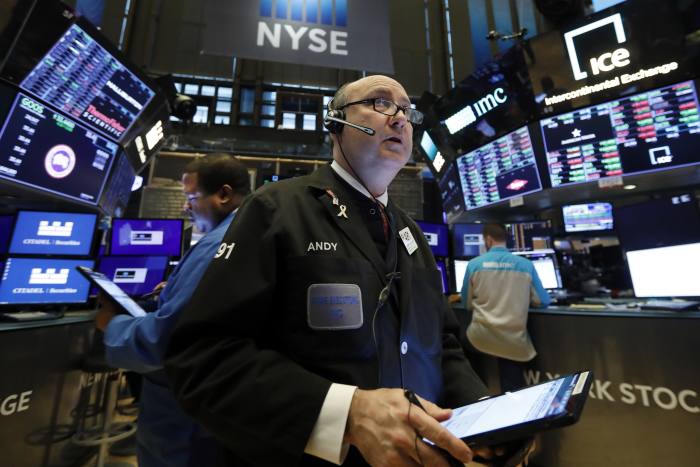
It is a sign of the esteem in which investors hold US shares that the country’s equity market comprises 57 per cent of the MSCI Index, and so an investor buying a global tracker fund has that level of exposure to the US, despite the actual economy being just 15 per cent of the global economy.
Fahad Kamal, chief market strategist at wealth manager Kleinwort Hambros, told FTAdviser that US equities are popular with investors all over the world due to the liquidity of that market, meaning investors are always able to sell their holdings easily.
He said that from a portfolio construction point of view, the starting point for a typical client in a balanced portfolio should be to hold 57 per cent in global equities to match the weighting of the index.
US equities
He said: “But of course there are times when the US market looks very expensive, and you would maybe have 20 per cent less than that in the US, or times when it is not an expensive market at all, and quite an attractive market, and you would perhaps have a bit more than that, up to perhaps 75 per cent.
"At this time, we don’t see the US market as expensive, so we think it is justified to have more than the 57 per cent market weighting at this time.”
Charlie Morris, head of multi-asset at Atlantic House fund management says: “US equities are collectively worth $33 trillion compared to $82 trillion for global equities, making them the largest geographic allocation.
"US companies have been buying overseas businesses for decades, making the US stock market not only bigger, but also more international.
US equities are worth 155 per cent of US GDP, against the 15-year average of 118 per cent.
By contrast global equities (excluding US) make up the lesser 56 per cent of global GDP against a 53 per cent average. Both are above average, but the US is much more so.
You could read this as a US bubble.
The boom in tech explains some of this, as does financial engineering, which is commonplace in US corporate culture.
But another consideration is that the US dominates global commerce following decades of mergers and acquisitions.
We are where we are.
Valuations
On valuation grounds, we would expect the rest of the world to outperform the US over the next decade.
But that does not necessarily mean turning away, as a core is a long-term must have for a diversified investor.
The prudent choice would be to hold US equities as a core holding, but to own a little less than you might have done in the past.
The main US equity market index has hit a new record high twice in the past six months, mostly as a result of investors being increasingly confident that the interest rate cuts implemented by the US Federal Reserve, that country’s central bank, and increased optimism that the lingering trade dispute between the US and China will soon end.
The record highs being achieved by the market are a concern to Alec Cutler, who runs the Orbis Global Balanced fund.








